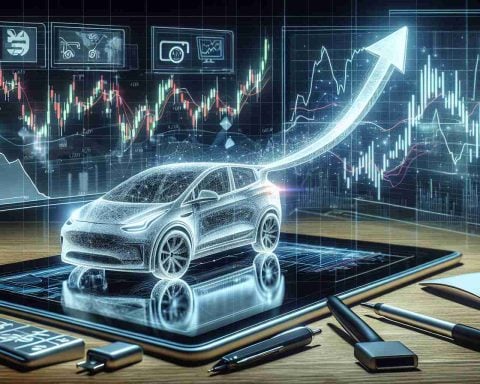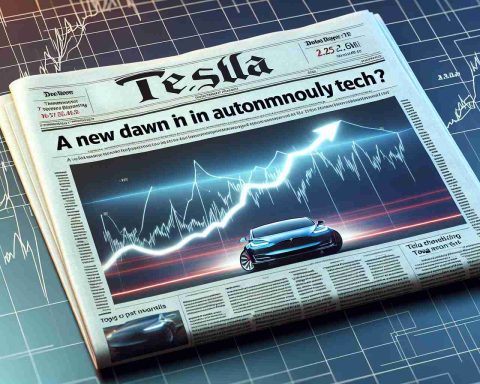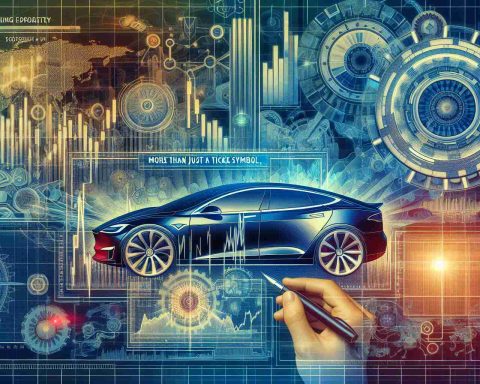A New Tax for Wisconsin Electric Vehicle Drivers
Starting January 1, electric vehicle (EV) users in Wisconsin are encountering a new charge at public charging stations. This change may seem minor, but it marks a significant shift in how EV drivers fuel up. The state has implemented a tax of 3 cents per kilowatt-hour, which affects all public EV chargers.
Myles Coleman, a regular EV user, expressed that despite this new expense, he still enjoys significant savings by not purchasing gasoline. He recently shared his charging experience during a trip from Green Bay to Milwaukee, emphasizing that the cost remains lower than filling up with gas. For Coleman, an $83 charging bill seems reasonable given the avoidance of traditional fuel costs.
When discussing this tax impact, Elizabeth and Lawrence Miller, another duo traveling towards Door County, noted that they charged up to 70 kilowatt-hours in their large EV. The resulting tax added just over $2 to their total charging expense, which amounted to approximately $32.
The Wisconsin Department of Transportation reported a remarkable increase in electric vehicles registered in the state, rising from about 3,700 in 2019 to 27,000 last year. As more drivers transition to electric, the state has implemented this charge to offset declining gasoline tax revenues. Importantly, this new tax does not affect home charging, keeping private power costs unaffected.
Wisconsin’s New EV Tax: What You Need to Know
Electric vehicle (EV) owners in Wisconsin should prepare for a new tax that begins on January 1st, 2024. The state has instituted a 3 cents per kilowatt-hour tax on all public EV charging stations. This move is significant for EV drivers, as it marks a shift in the overall economic landscape of electric vehicle usage and infrastructure.
Overview of the New Tax
The newly imposed tax aims to compensate for the decreasing revenue from traditional gasoline taxes, which have seen a decline as more individuals switch to electric vehicles. The Wisconsin Department of Transportation has reported a substantial increase in registered EVs, growing from approximately 3,700 in 2019 to a staggering 27,000 in 2022. The rise highlights a growing trend toward sustainable transportation solutions.
Impact on Drivers
Despite the additional cost, many EV users, such as Myles Coleman, still find that the savings from not purchasing gasoline offset the new tax. Coleman shares his experience of charging his EV during lengthy trips, emphasizing the overall benefits of electric driving, even with this new expense.
For instance, Elizabeth and Lawrence Miller, who recently traveled to Door County, charged their large EV with a consumption of 70 kilowatt-hours. The new tax amounted to just $2.10, adding only a minor amount to their total charging cost of around $32.
Advantages and Drawbacks
Pros:
– Cost Savings on Fuel: EV drivers continue to enjoy lower overall fueling costs compared to gasoline vehicles.
– Environmental Benefits: With the rise of EV usage, there are positive implications for reducing carbon emissions.
– Infrastructure Development: The tax may help fund improvements in the EV infrastructure to better accommodate the growing number of electric vehicles.
Cons:
– New Financial Burden: The added tax increases overall charging costs for consumers, which can be a disadvantage during long trips.
– Limited Effects on Home Charging: While public charging stations are taxed, home charging remains unaffected, but potential regulation in the future could change this.
Future Trends and Predictions
Wisconsin’s adoption of this EV tax points towards a broader trend in other states considering similar measures to ensure funding for road maintenance and infrastructure amidst declining gasoline revenues due to the growing popularity of electric vehicles.
As electric vehicle sales are projected to rise, government initiatives at both state and federal levels will likely evolve. Innovations in EV technology, battery efficiency, and charging infrastructure are anticipated as the market responds to these new challenges and opportunities.
Conclusion
The introduction of a tax for electric vehicle users in Wisconsin is a notable shift in policy that reflects the state’s efforts to adapt to the increasing number of electric vehicles. As more individuals transition to these environmentally-friendly options, understanding the implications of such taxes will be crucial for both current and prospective EV owners.
For more information about electric vehicle regulations and updates in Wisconsin, visit Wisconsin Department of Transportation.


















